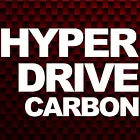- RC Model Parts
- Race Cars & Automotive
- Drones
- Industrial Robotics
- Musical Instruments
- Bikes
Specifications - Sheet Sizes - Different
| Specification | Value |
|---|---|
| Thickness | 1.0mm - 5.0mm |
| Tolerance | + - 0.2mm |
| Type | Carbon Fibre Sheet |
| Bonding | Epoxy Resin |
| Pattern | Twill Weave (Both Sides) |
| Finish | Matte Finish ( Both Sides) |
| Colour | Black |
The double-sided cosmetic finish is a key feature of these sheets, as it offers an aesthetically pleasing appearance on both surfaces. This is achieved through meticulous layering of the carbon fibers and careful control of the curing process. The result is a high-gloss, smooth surface free of defects such as wrinkles or air bubbles. This finish not only adds visual appeal but also ensures uniform mechanical properties, as the fibers are perfectly aligned and consolidated during the autoclave curing process.
Curing in an autoclave is critical to achieving the highest standards of quality. The autoclave applies controlled heat, pressure, and vacuum conditions to the prepreg carbon sheets, ensuring thorough curing of the resin. This process eliminates any trapped air and enhances the material’s density and strength. The uniform application of pressure ensures that the cosmetic finish is flawless on both sides, making the sheets suitable for high-end applications such as automotive interiors, aerospace components, and luxury consumer products.
The use of prepreg carbon and autoclave curing makes these sheets highly versatile. They are not only lightweight but also possess exceptional tensile strength, stiffness, and resistance to environmental factors such as corrosion and UV radiation. These properties make them suitable for a wide range of industries, including motorsports, marine, and industrial design, where aesthetics are as important as performance. The double-sided cosmetic finish also allows for greater design flexibility, as both sides of the sheet can be exposed in applications requiring visual excellence.
Overall, carbon fiber sheets with a double-sided cosmetic finish are a testament to the advanced capabilities of composite materials. By combining the precision of prepreg carbon with the controlled environment of autoclave curing, manufacturers can produce a material that meets the most stringent requirements for strength, weight, and appearance. Whether used in high-performance engineering or luxury consumer goods, these sheets embody the perfect balance of form and function.
Technical Data:
-
Material Composition
- Fiber Type: High-strength carbon fibers (e.g., Toray T700, T800, or equivalent)
- Resin Type: Epoxy-based thermosetting resin (pre-impregnated)
- Fiber Volume Fraction (FVF): ~60%
- Resin Content: ~40%
-
Physical Properties
- Sheet Thickness: 0.3 mm – 5.0 mm (customizable based on application)
- Surface Finish: High-gloss, smooth, double-sided cosmetic finish
- Surface Defect Tolerance: Free of air bubbles, wrinkles, or fiber misalignment
- Density: 1.5 – 1.6 g/cm³
-
Mechanical Properties
- Tensile Strength: 600 – 700 MPa
- Tensile Modulus: 50 – 70 GPa
- Flexural Strength: 900 – 1,200 MPa
- Flexural Modulus: 50 – 60 GPa
- Interlaminar Shear Strength (ILSS): 45 – 55 MPa
-
Thermal Properties
- Glass Transition Temperature (Tg): ~120°C – 180°C (dependent on resin system)
- Coefficient of Thermal Expansion (CTE): Near zero in fiber direction (~0.1 ppm/°C)
- Service Temperature: -50°C to +120°C (can vary based on resin system)
-
Dimensional Tolerances
- Flatness: < 0.5 mm over 1 m² area
- Thickness Tolerance: ± 0.1 mm (depending on sheet thickness)
- Edge Finish: Precision-cut with CNC or waterjet for clean edges
-
Environmental Resistance
- UV Resistance: Excellent (with protective coating applied)
- Corrosion Resistance: Superior (inherent to carbon fiber and epoxy resin)
- Moisture Absorption: <0.5%
Applications
- Aerospace: Interior panels, structural components
- Automotive: Interior trim, body panels, racing components
- Marine: Lightweight and corrosion-resistant panels
- Luxury Goods: Watches, electronic enclosures, decorative items
- Sports Equipment: Bicycle frames, performance gear









